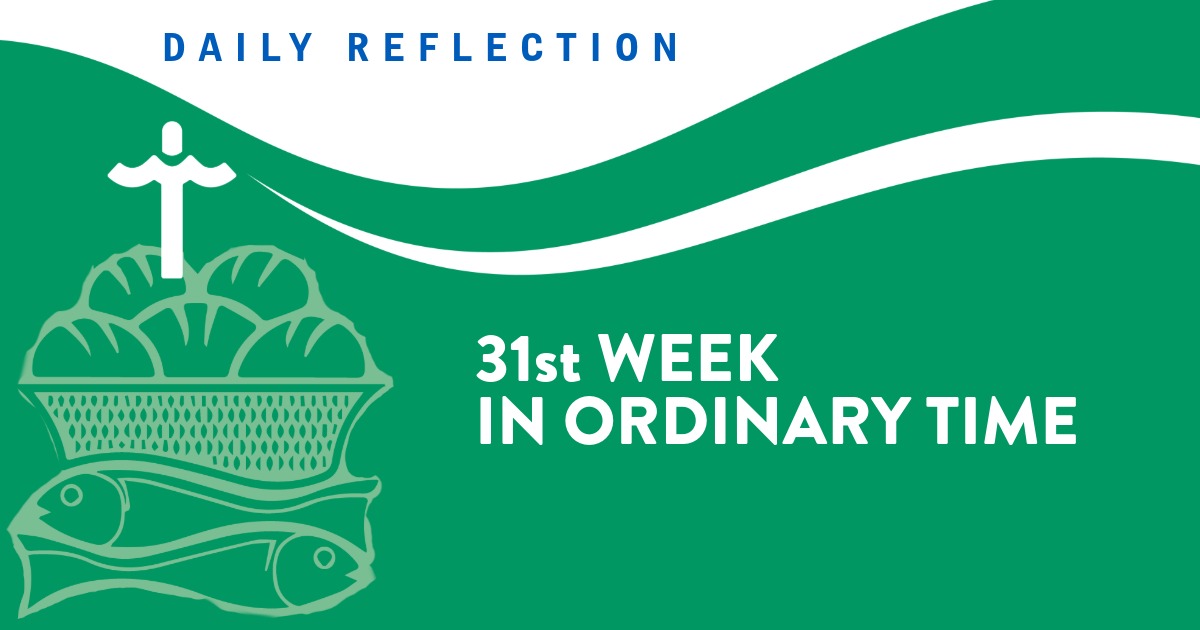Thursday of the Thirty-first Week in Ordinary Time
In Romans 14:7-12, Paul uses the concept of stewardship to resolve the problem of judgmentalism within the Church. In his day, the “Judaizers” were condemning Gentile converts for accepting the freedom the Church gave them not to observe all the cultural prescriptions of the law of Moses (Acts 15:29). Paul took a firm but compassionate position:
Hence, as to the eating of food offered to idols, we know that ‘no idol in the world really exists,’ and that ‘there is no God but one’…. It is not everyone, however, who has this knowledge…. they still think of the food they eat as food offered to an idol [even though it was not, in fact, sacrificed to idols: 8:10]; and their conscience, being weak, is defiled…. Therefore, if food is a cause of their falling, I will never eat meat, so that I may not cause one of them to fall.” (1Corinthians 8:4-13).
Paul condemned those on both sides who judged others. “Those who eat must not despise those who abstain, and those who abstain must not pass judgment on those who eat….” We are all servants and stewards of God. “We do not live to ourselves, and we do not die to ourselves [but] to the Lord…. So then, each of us will be accountable to God. “He asks, ‘Who are you to pass judgment on servants of another? It is before their own lord that they stand or fall” (Romans 13:3-4). Whether we are being judged or judgmental, we need to trust that the Lord will set all things right. As today’s Psalm (Psalm 27) reminds us, “I believe that I shall see the good things of the Lord in the land of the living.”
Luke 15:1-10 shows us that Jesus’ concern is not to judge but to save. “Which one of you, having a hundred sheep and losing one of them, does not leave the ninety-nine in the wilderness and go after the one that is lost until he finds it?” As faithful stewards acting according to the mind and heart of our Lord, our concern is not to find fault, but to find ways to come to mutual understanding with those in the Church with whom we disagree. We “search carefully,” not only for the person we think is lost, but for the reason why that person thinks differently than we do. We listen. We respond sincerely to what we hear. And above all, before we discuss the issues, we “search carefully” for the experience of God we hold in common. We begin by sharing our spiritual experience; then we have a basis of unity from which we can discuss our intellectual disagreements. If we have enough trust to “believe we shall see the good things of the Lord in the land of the living,” we will, in fact, find the good in each other’s hearts.
Initiative: As Christ’s steward, show concern for unity with all his sheep.
— Fr. David M. Knight
View today’s Mass readings, Lectionary #488, on the USCCB website here
Fr. David M. Knight (1931-2021) was a priest of the Diocese of Memphis in Tennessee, a prolific writer, and a highly sought after confessor, spiritual director, and retreat master. He authored more than 40 books and hundreds of articles that focus primarily on lay spirituality and life-long spiritual growth.



0 Comments